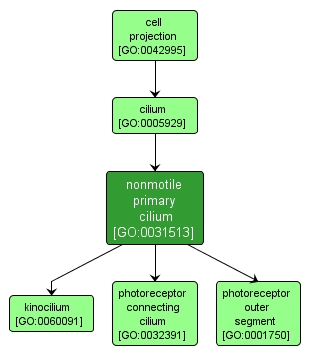| Desc: |
An immotile primary cilium that may be missing the central pair of microtubules, or the central pair of microtubules and outer dynein arms. Some primary cilia also have altered arrangements of outer microtubules (fewer than nine and/or not always present as doublets). Nonmotile primary cilia typically function as sensory organelles that concentrate and organize sensory signaling molecules. |














